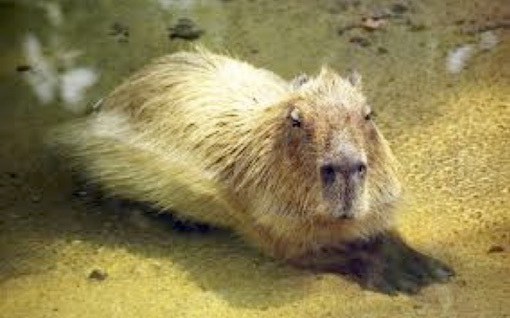
Swamp Rat. Photo: Wikimedia Commons.
Baton Rouge.
A party of swamp rats from the Louisiana bayou filed a class action lawsuit today against President Donald Trump, saying that his repeated vow to “drain the swamp” was a libel against legitimate swamp dwellers.
According to lawyers for BayoUnited, the name the rats have taken for the sake of the suit, the plaintiffs seek $1.6 billion in damages for collective character assassination.
The case, filed in the U.S. Court for the Middle District of Louisiana, accuses the president of libel per se, since in impugning the swamp—in Trump’s words, “the entire corrupt Washington Establishment”—“the name ‘swamp rat’ is defamed by association, harming the rodents’ ability to perform their occupation,” the complaint alleges. Swamp rats typically work at gnawing rushes, sedges, and other aquatic vegetation to stubble, while others are processed into “slim jims,” jambalaya, or furs.
Said one litigant, a reddish-brown twenty-pound male with large yellow incisors, whipping his round, nearly hairless sixteen-inch tail in outrage, “My personal and professional life is a shambles.”
The case could face its first challenge on Monday. If the judge rules that the Beltway and bayou species are identical in character, the suit could be thrown out. But sources close to the case say BayoUnited’s lawyers will further argue that the president’s own appointees not only embody the swamp “type” but are more pernicious. Exhibits are said to include evidence implicating at least five cabinet members in outsize campaign donations and tying dozens of people newly appointed to federal positions to lobbies and other conflicts of interest.
Laurence Tribe, professor of constitutional law at Harvard Law School and the Carl M. Loeb University Professor at Harvard University, said the case was “audacious” but not without merit: “Every client I have that lives in the bayou finds the slur painful, because it suggests that you might expect them to behave like Betsy DeVos or Steve Mnuchin,” Tribe said. He added that the rhetorical prospects for the attorneys were ripe. “Sure, swamp rats contribute to massive coastal erosion by eating plants that hold the soil together, but what’s that against people who erode the whole political process?”
Tribe suggested the plaintiffs’ lawyers wear rubber gloves during the proceedings, although lobbyists have not yet been shown to transmit tularemia, a bacterial disease often contracted from contaminated water, expected to be more widespread after the president’s executive order designed to cut back on EPA regulations. “Folks with this disease may appear tame,” he said.
Because any decision is expected to have repercussions for varmints nationwide, some beaver and a couple alligators not party to the litigation requested and were granted permission to submit amicus briefs.
A spokesrat for the plaintiffs said that if they prevailed, they would apply any award toward restoration of the bayou, which is threatened by pollution from golf course pesticide runoff and industrial waste. Louisiana’s largest source of water pollution is the ExxonMobil Baton Rouge refinery, the seventh-largest water polluter in the nation. The swamp rats would then probably seek to have their name officially changed to “marsh dog” or something, just to foreclose any further tie to the administration.
(In an earlier version of this article, the Louisiana swamp rats were incorrectly referred to as “Cajuns.” They are descendants of rodents from Argentina, not France.)